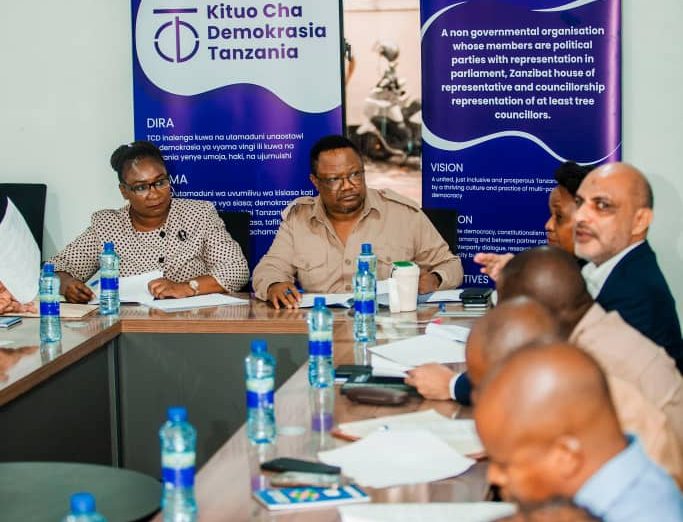TUNDU Lissu, the leader of Tanzania’s main opposition party CHADEMA, has sent shockwaves through the country’s political landscape by expressing his readiness for dialogue with the ruling CCM party to break the deadlock over electoral reforms. This marks a stark departure from his previous stance, where he openly criticized and ultimately rejected a similar reconciliation process led by his predecessor, Freeman Mbowe.
Lissu’s pronouncement came after chairing a meeting of the Tanzania Centre for Democracy (TCD) in Dar es Salaam, where he emphasized the importance of dialogue in resolving political conflicts. Quoting wartime British leader Winston Churchill, he stated, “If we don’t talk, we will fight. Churchill said, ‘Jaw-jaw is better than war-war.’”
Yet, Lissu’s pivot to dialogue raises fundamental questions: What makes his approach different from the Maridhiano process that he once scorned as a sham? If a Mbowe-led dialogue was unacceptable, why should his version now be embraced?
The maridhiano precedent and Lissu’s reversal
In 2022, Mbowe initiated Maridhiano, a dialogue between CHADEMA and the ruling CCM aimed at fostering political reconciliation. However, Lissu was among its fiercest critics, dismissing it as a mere “mapendano” (romantic affair) between Mbowe and President Samia Suluhu Hassan. He argued that genuine democratic reforms could not be achieved through backroom negotiations with a government he deemed illegitimate.
Now, Lissu – who assumed the CHADEMA chairmanship in January – finds himself at the forefront of a renewed push for dialogue. Analysts suggest that this shift risks painting him as a politician with a double standard. If he opposed reconciliation under Mbowe, what justifies his call for dialogue now? Could it be that his past resistance was fueled by a personal vendetta, political rivalry, or even jealousy over Mbowe’s rising status as a statesman?
Strategic shift or political expediency?
Lissu’s change of heart comes at a critical time. He is leading CHADEMA’s nationwide campaign, “No Reforms, No Election,” demanding comprehensive electoral changes ahead of the 2025 general election. While he continues to reject what he calls “cosmetic reforms” by President Samia’s administration, his willingness to engage in talks suggests a more pragmatic approach.
Some political observers speculate that Lissu’s newfound openness to dialogue may have been influenced by his recent visit to Kenya, where he met with veteran opposition leader Raila Odinga. Odinga advised Lissu to embrace negotiation as a means to achieve reforms without alienating moderates within the opposition and the international community.
Reconciliation or political maneuvering?
With CHADEMA and ACT-Wazalendo now have a common demand, pressuring the government on electoral reforms, the political stakes are high. Lissu’s leadership of TCD gives him a formal platform to engage with the ruling party, a privilege that Mbowe once held but was harshly criticized for using. If Lissu’s dialogue initiative succeeds, it could bolster his leadership within the opposition. If it fails, he risks being accused of the same political naivety he once ascribed to Mbowe.
As Tanzania heads towards the 2025 elections, the real test lies in whether Lissu’s approach will yield tangible reforms or merely serve as a political survival strategy. Is he swallowing his pride for the greater good, or is this a calculated move to solidify his grip on CHADEMA and weaken his internal rivals?
Only time will tell. But for now, Lissu must confront the ghosts of Maridhiano and prove that his brand of dialogue is more than just politics as usual.










